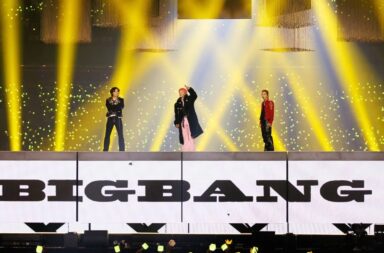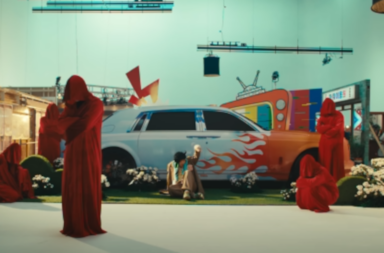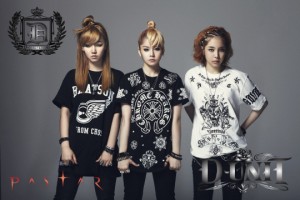 In an industry of young ‘ins that all want to make it, companies have to make sure that every aspect of a debuting K-pop group is ready. This means no weak members of any kind. In the past, groups have gotten away with the standard formula but had situations where each member was perhaps not the best at what they needed to be doing musically. We all know what role I’m talking about: the rapper.
In an industry of young ‘ins that all want to make it, companies have to make sure that every aspect of a debuting K-pop group is ready. This means no weak members of any kind. In the past, groups have gotten away with the standard formula but had situations where each member was perhaps not the best at what they needed to be doing musically. We all know what role I’m talking about: the rapper.
Within K-pop idols–there are plenty of decent rappers outside of the idol sphere–rapping tends to be that skill that is acquired through training, yet it’s the skill that, for true mastery, needs to come from genuine interest, dedication, and talent from the individual. Not everyone can just walk on stage and spit out rhymes with enough authenticity to sell the show. Before the recent rookie scene, it was okay to not have that rapper that stood out, that wrote their own rhymes, that sold it as a rapper from their body language to their facial expressions, to their vocal indications. But when competition gets so close, and everyone can sing, you know it’s time to step up. The next logical place to focus on is the rapping.
It’s a staple for every idol group to have a singer. After all, they are supposed to make some sounds on stage, and it’s preferred that those sounds are pleasant to listen to. As such, while the talent of singers should not be undermined, it is fairly common for every idol group to have that one singer that stands out as being able to carry those high or long notes. But with rapping, it’s not so much the case. You can train a rapper, but they’re going to most likely have a bland style that is decent enough, but nothing outstanding. Heck, the song they rap in probably doesn’t even need a rap sequence. So with rookies of 2011 and 2012, it’s easy to see that they stand out because they have members that are either genuinely interested in rapping and that style of music, or they can bring a new style to the K-pop scene in a relevant manner.
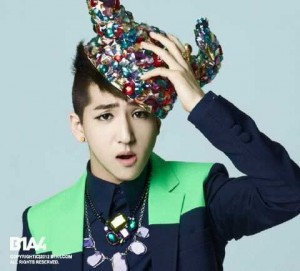 For example, in 2011, Block B hit the scene: A hip-hop group that would clearly have rapping as the emphasis. Though they might not have blown everyone out of the water until “NalinA,” they still made a statement that they had talent and were going to show just how much, no matter their differences from the rest of the idols. Also in 2011, perhaps an unconventional pick, was B1A4 with main rapper Baro. The cutesy boy group came armed with the deep-voiced rapper who, though a bit inexperienced, can rap with his own style. He’s also taken part in writing his own parts and is a solid addition next to Sandeul‘s strong vocals.
For example, in 2011, Block B hit the scene: A hip-hop group that would clearly have rapping as the emphasis. Though they might not have blown everyone out of the water until “NalinA,” they still made a statement that they had talent and were going to show just how much, no matter their differences from the rest of the idols. Also in 2011, perhaps an unconventional pick, was B1A4 with main rapper Baro. The cutesy boy group came armed with the deep-voiced rapper who, though a bit inexperienced, can rap with his own style. He’s also taken part in writing his own parts and is a solid addition next to Sandeul‘s strong vocals.
With 2012, oh the groups you could name: B.A.P, EXO, NU’EST, EvoL, D-Unit, among others. B.A.P brings Bang Yong-guk and Zelo with their complementary rapping styles. EXO-K‘s Chanyeol is probably SM Entertainment‘s best rapper, and he has actual interest in styles of music that consistently use rapping. NU’EST has Aron to pull of those grammatically and logically correct English raps that are soothing to international English speakers’ ears. EvoL is coming out as a hip-hop girl group in early August, having Juni.J, an experienced rapper, on board. All members of D-Unit’s trio are experienced both in singing and rapping, as their debut song “I’m Missin’ You” showed.
It’s clear that becoming an idol is no longer just about an image. While some visuals may have been able to get away with contributing little musically before, in order to stay competitive, that’s not going to be allowed any longer. But is this going to continue as a trend? Is it possible that the “perfect” idol group is going to be formed in the near future, where every member is talented musically, visually gifted, and has the gift of gab?
Probably not. Rapping is, as mentioned before, necessary in only a few styles of songs. If anything, rap breaks seem to be added in so those members designated as rappers have their time to shine. It’s also an easy to spice up a song without having to put in much creative input. For groups that focus on vocals or stick with a more popular style, having a legitimate rapper is a waste not only for that rapper within the group, but also for the company that went through the effort of finding that rapper and signing them into the company. It becomes a case of mismanagement as opposed to low talent. There’s no reason for a company intending to put out popular music that isn’t going to need real rapping to find someone with interest in rapping and all the effort that goes into the art. 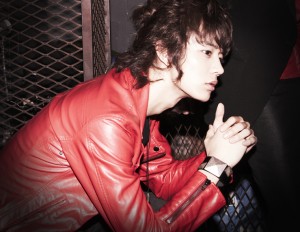 And over time, whoever ends up taking that supposed “rapping” role in the group is going to have a style that becomes characteristic of that group, regardless of how good they are. SHINee‘s Minho, someone who has been mentioned countless times for his questionable role in his group’s music, isn’t the greatest rapper, but the style he has developed does fit in with SHINee’s sound. Would a more talented rapper fit SHINee? Quite honestly, no. That more talented rapper would seem like a joke in SHINee because of the limited roles he would have and the talent that would seem out of place in that setting. And dare I say it? Minho does sell his raps, to an extent, through the pure confidence he displays about how the words pass out of his mouth.
And over time, whoever ends up taking that supposed “rapping” role in the group is going to have a style that becomes characteristic of that group, regardless of how good they are. SHINee‘s Minho, someone who has been mentioned countless times for his questionable role in his group’s music, isn’t the greatest rapper, but the style he has developed does fit in with SHINee’s sound. Would a more talented rapper fit SHINee? Quite honestly, no. That more talented rapper would seem like a joke in SHINee because of the limited roles he would have and the talent that would seem out of place in that setting. And dare I say it? Minho does sell his raps, to an extent, through the pure confidence he displays about how the words pass out of his mouth.
However, what companies do need to be aware of is this upward shift in talent that newer groups are bringing. Groups with these rappers tend to have those members write their own parts. And it makes sense. While writing a rap takes effort and talent, it’s easier than writing the lyrics to a whole song or doing all of that plus the composition. That type of writing is the first step to becoming more musically involved with the music that the group puts out, which in effect, makes that music really the group’s own. Through this method, these groups are honestly able to own their songs because they aren’t just random tracks given to them by their company; they have investment by the group. If that group puts effort into a song, it’s going to be a song they are proud to promote. In other words, it’s going to be good. In addition, this added involvement in the music-making process gains respect from their audience. Though the group may not have a fanbase waiting for them when they debut, there will certainly be some noise over how the group isn’t just made from a cookie-cutter formula: they mean business. And in fact, of these newer groups, it could be argued that some of them have the idol title only because of their age and the fact that they gave it to themselves. Should they have debuted without that title, there wouldn’t have been much of a difference.
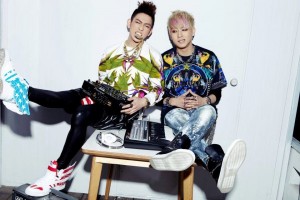 As a result, larger companies need to be more aware of the groups they are putting out. Of the Big Three companies that put out rookie groups in 2012, when it comes to level of respect that they have plus their fanbase size, it’s safe to say that EXO and JJ Project aren’t at the top of the list. These groups are doing fine, but they haven’t reached the musical accolades that some other groups have for truly being distinguishing and their personal involvement in their music. This runs back to the benefits of a smaller company that needs each group to be a stand-out rather than a larger company that can put out anything and support it with its wealth. Audiences of course are going to continue to eat up the image of flower boys or adorably awkward and dorky ones, but when there’s the added influence of music that has a message that the group themselves was involved in, that group can create fans for life, fans that don’t just enjoy groups for their personalities or how amusing they are in variety appearances. Instead, it gets back to the very essence of what these groups arguably should be at the core: musicians.
As a result, larger companies need to be more aware of the groups they are putting out. Of the Big Three companies that put out rookie groups in 2012, when it comes to level of respect that they have plus their fanbase size, it’s safe to say that EXO and JJ Project aren’t at the top of the list. These groups are doing fine, but they haven’t reached the musical accolades that some other groups have for truly being distinguishing and their personal involvement in their music. This runs back to the benefits of a smaller company that needs each group to be a stand-out rather than a larger company that can put out anything and support it with its wealth. Audiences of course are going to continue to eat up the image of flower boys or adorably awkward and dorky ones, but when there’s the added influence of music that has a message that the group themselves was involved in, that group can create fans for life, fans that don’t just enjoy groups for their personalities or how amusing they are in variety appearances. Instead, it gets back to the very essence of what these groups arguably should be at the core: musicians.
It may seem like a far-fetched tie-in: an increase in rapper quality increases music quality. But quite honestly, it’s a correlation that is present in groups with both variables. Big Bang has G-Dragon and sometimes T.O.P writing lyrics and composing, and their songs tend to be successful, not just because of their fans, but that sound produced attracts a variety of listeners. If we even look at Super Junior, when the members are involved in composition and writing lyrics–mainly Henry, Leeteuk, Eunhyuk, and Donghae–, the end result is music that often surpasses the rest of their songs in quality. And though all of those members aren’t the greatest at rapping, they all have taken on that role at some point in Super Junior’s lifetime.
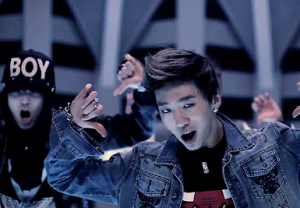 These past two years seem to be defining what a K-pop group needs to be through the increased competition that demands higher quality music. It’s not that the years before didn’t have sound quality. But the years before seemed instead to develop the idea of an idol group and how they could become successful. There wasn’t as much focus on the groups’ being active in their own music production because it was okay to not be involved that much. Idols were idols, aiming to show off their performance skills and dashing personalities. But over time, when every group can perform and have those endearing members, it becomes time to return back to the roots and develop music, which is what these recent years have been leaning towards. While rappers aren’t the only ones that can get involved with music, the shortage of experienced rappers in the idol industry is apparent, highlighting their involvement when it does happen, bringing prestige to their group.
These past two years seem to be defining what a K-pop group needs to be through the increased competition that demands higher quality music. It’s not that the years before didn’t have sound quality. But the years before seemed instead to develop the idea of an idol group and how they could become successful. There wasn’t as much focus on the groups’ being active in their own music production because it was okay to not be involved that much. Idols were idols, aiming to show off their performance skills and dashing personalities. But over time, when every group can perform and have those endearing members, it becomes time to return back to the roots and develop music, which is what these recent years have been leaning towards. While rappers aren’t the only ones that can get involved with music, the shortage of experienced rappers in the idol industry is apparent, highlighting their involvement when it does happen, bringing prestige to their group.
Along this vein, though this year is only 2/3 finished, it’ll be interesting to see the type of competition 2013 will bring, whether there’s another aspect to improve on, or if older groups will need to up their A-game, despite their established fanbases.
Seoulmates, how do you see idol rappers from the more recent years? Has music quality gone up, or am I just off my rocker? And can you think of any other groups heavily involved in their music production?
(LOENENT, DBusinessENT, D-Business Entertainment, WM Entertainment, SM Entertainment, JYP Entertainment, TS Entertainment, Brand New Stardom)

